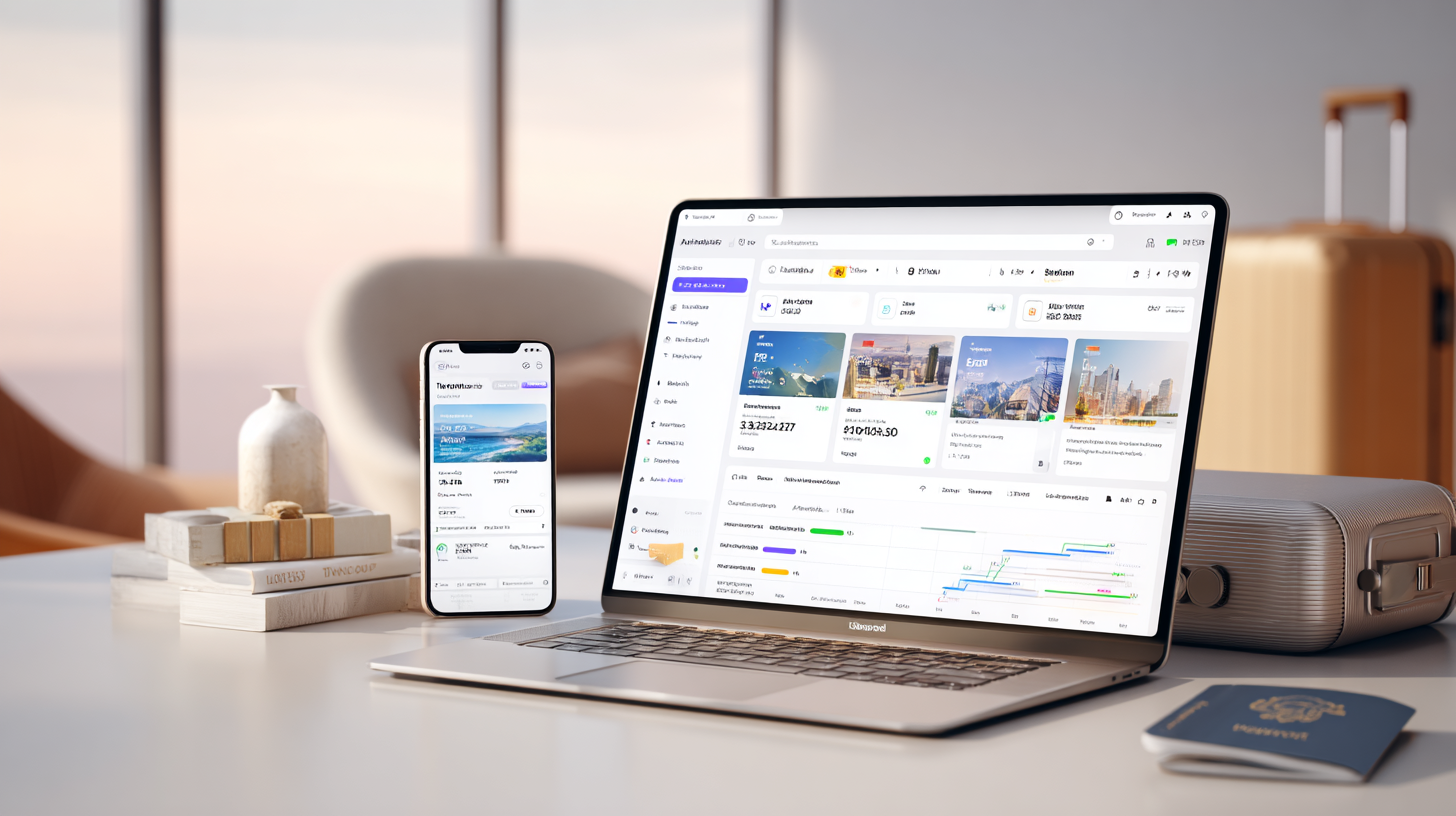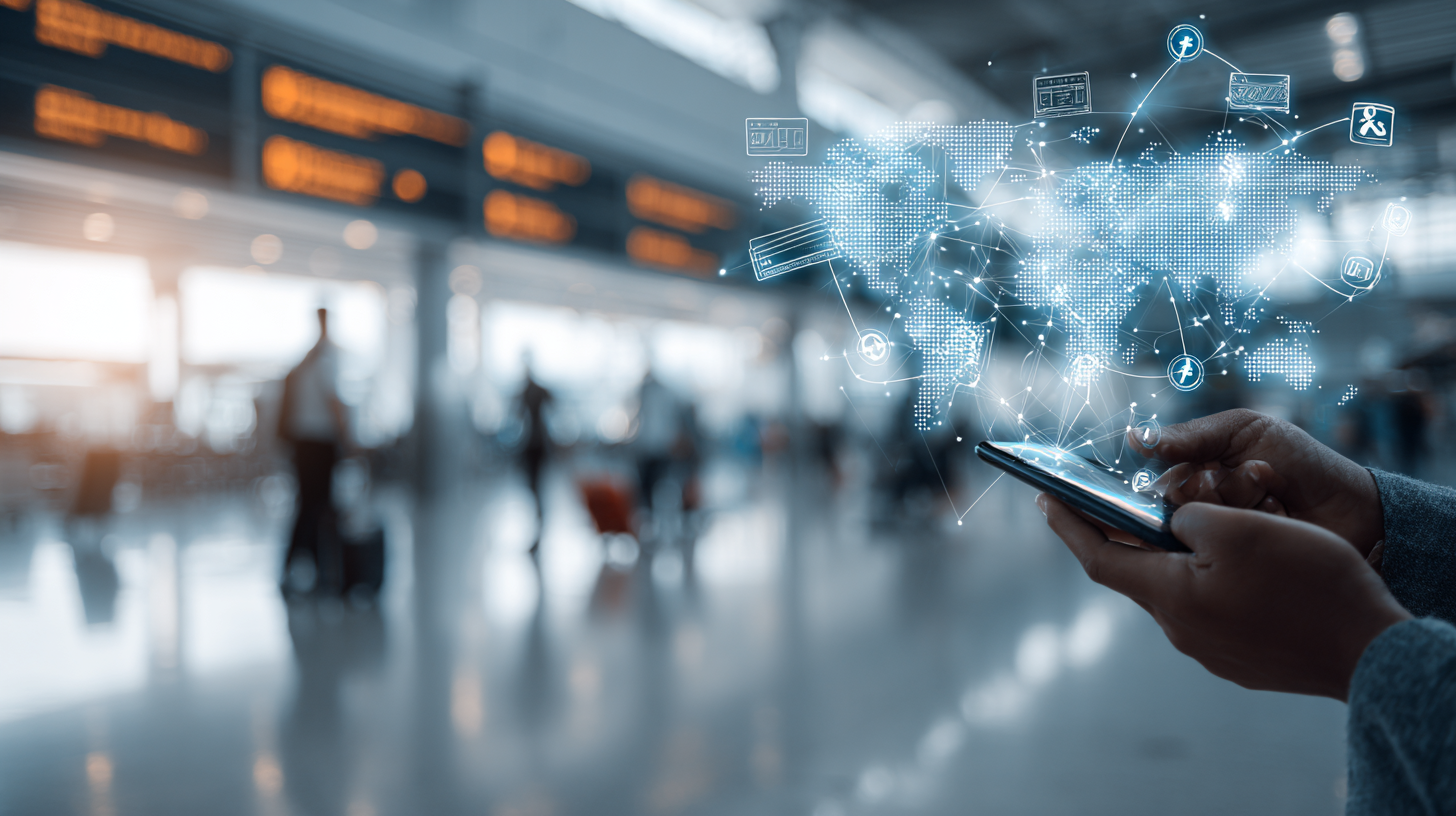Travel chatbots are revolutionizing how we plan international trips, offering a smarter, faster alternative to traditional travel research. Planning global travel often involves navigating a maze of visa requirements, understanding unfamiliar local customs, and staying informed on frequently changing travel restrictions. Historically, this meant hours of combing through government websites, guidebooks, and forums—only to encounter outdated or conflicting information.
Today, travelers have a reliable digital assistant at their fingertips. AI-powered travel chatbots provide instant, accurate information tailored to your nationality, destination, and itinerary. Whether you’re unsure about transit visa rules, cultural etiquette, or entry regulations, these intelligent tools offer 24/7 support—right when you need it most. This shift not only reduces stress but empowers travelers to move confidently through every stage of their journey.
The emergence of immigration AI technologies has revolutionized how travelers access critical information, offering real-time assistance simplifying the complex aspects of international travel. These intelligent systems are transforming the travel industry by providing personalized, accurate guidance helping travelers navigate global mobility with confidence.

The Evolution of Travel Support Systems
Travel assistance has undergone a remarkable transformation over the decades. What once required in-person visits to embassies, travel agencies, and tourism offices has evolved through several technological phases. The first wave of digital transformation moved information online, creating vast repositories of travel data, while comprehensive, often remained difficult to navigate.
Early travel websites and forums offered some improvement, but still required travelers to sift through extensive information, cross-reference multiple sources, and hope the details they found were current. Even dedicated travel support call centers, while helpful, had limitations in hours of operation and sometimes lengthy wait times.
The integration of AI in travel marks the next significant leap in this evolution. Unlike static websites or limited-hour support services, AI-powered systems can process vast amounts of information instantaneously, providing travelers with precisely what they need when they need it.
Modern AI for immigration systems don’t just store information—they understand it. By using natural language processing and machine learning algorithms, these platforms can interpret complex queries, recognize the context of questions, and deliver relevant, personalized responses. This represents a fundamental shift from information storage to intelligent information processing.
The application of agentic AI technologies further enhances these capabilities, allowing systems to not only respond to direct questions but also anticipate needs based on a traveler’s profile, destination, and itinerary. These intelligent agents can proactively offer relevant information before a traveler even asks, creating a more seamless and supportive travel planning experience.
This evolution reflects a broader trend toward more intelligent, responsive travel support adapting to individual needs rather than requiring travelers to adapt to rigid systems.
Real-Time Solutions for Travelers
The most significant advantage of AI travel chatbot technology is its ability to provide immediate assistance regardless of time zones or business hours. Whether you’re planning a trip months in advance or need urgent information while already abroad, these systems offer 24/7 support, which traditional services simply cannot match.
The real-time nature of these interactions transforms how travelers approach information gathering. Instead of conducting extensive research in advance, travelers can now ask specific questions as they arise and receive immediate, targeted responses. This shift from batch processing to on-demand information access fundamentally changes the travel planning experience.
What makes these systems particularly valuable is their ability to handle nuanced queries which might confuse traditional search engines. For example, a question like “Do I need a transit visa for a 6-hour layover in Dubai if I hold an Indian passport and am traveling to Canada?” involves multiple variables typically requiring cross-referencing several sources. An advanced AI travel system can process all these parameters simultaneously and provide a precise answer within seconds.
The cognitive load reduction for travelers is substantial. Rather than keeping track of numerous details across different aspects of travel, you can externalize this information management to the AI system, knowing you can retrieve exactly what you need when you need it. This creates a more relaxed travel planning experience and allows for greater spontaneity in travel decisions.
Visa Requirements Made Simple
Navigating visa requirements represents one of the most complex aspects of international travel. Requirements vary not just by destination, but also based on the traveler’s nationality, purpose of visit, duration of stay, and sometimes even travel history. This complexity has traditionally made visa research one of the most time-consuming aspects of travel planning.
Immigration AI solutions have transformed this process by creating systems which can instantly cross-reference a traveler’s profile against comprehensive visa requirement databases. Rather than sorting through pages of governmental websites, travelers can simply provide their citizenship, destination, and travel details to receive precise visa guidance.
These systems excel at clarifying conditional requirements, often confusing travelers. For example, when a visa policy states certain nationalities need an Electronic Travel Authorization (ETA) “unless they hold a valid visa for country X,” the AI can process this logic and apply it to your specific situation, clarifying whether the exception applies to you.
The accuracy of these systems continues to improve through applied AI methodologies enabling continuous learning and updating. When visa policies change—as they frequently do—the AI systems can incorporate these updates immediately, ensuring travelers always receive current information. This represents a significant advantage over traditional information sources which may take days or weeks to update printed or even digital content.
For business travelers facing tight schedules, these tools offer particular value by outlining expedited processing options, premium visa services, and estimated processing timeframes based on current conditions. This level of detail enables more precise travel planning and reduces the risk of delays due to visa complications.
Understanding Local Customs
Beyond formal entry requirements, successful international travel often depends on understanding and respecting local customs. Navigating cultural differences can be challenging, with practices seeming ordinary in one culture potentially causing offense in another.
Immigration AI technology addresses this challenge by providing context-aware cultural guidance. Rather than offering generic travel advice, these systems can provide specific information about customs, etiquette, and social norms relevant to your particular destination and the situations you’re likely to encounter.
For business travelers, this might include guidance on greeting protocols, business card etiquette, appropriate attire for meetings, and timing considerations like typical business hours or cultural attitudes toward punctuality. For leisure travelers, it might cover tipping practices, dining etiquette, appropriate dress for visiting religious sites, or photography restrictions.
What makes AI systems for immigration particularly valuable in this context is their ability to provide nuanced guidance rather than simplistic rules. Instead of merely stating a behavior is inappropriate, these systems can explain the cultural context, suggest alternatives, and help travelers understand the “why” behind local customs. This deeper understanding fosters genuine cultural appreciation rather than mere compliance with rules.
The guidance these systems provide can also be situation-specific. A traveler can ask about appropriate behavior for particular settings—from business meetings to religious ceremonies to casual social gatherings—and receive tailored advice acknowledging the varying expectations across different contexts within the same culture.
As artificial intelligence for immigration continues to advance, these systems increasingly incorporate visual recognition capabilities to help travelers with real-time guidance. For instance, a traveler might use their smartphone camera to scan a dining table setting and receive immediate guidance on unfamiliar utensils or food serving protocols, making cultural navigation more intuitive.
Travel Restriction Updates
Perhaps the most volatile aspect of international travel involves temporary restrictions and requirements which can change with little notice. The COVID-19 pandemic dramatically highlighted this challenge, with entry requirements, testing protocols, and quarantine rules shifting frequently based on changing health situations.
Immigration services AI excels at monitoring these dynamic situations and providing travelers with current, accurate information about restrictions affecting their specific itineraries. These systems continuously scan official government announcements, health authority updates, and airline policies to maintain current awareness of global travel conditions.
What makes these tools particularly valuable is their ability to translate complex policy language into clear, actionable guidance for travelers. Rather than providing the raw text of a governmental decree, the AI can extract the practical implications for different traveler categories and present this information in straightforward terms.
The notification capabilities of modern immigration software AI add another layer of value. These systems can proactively alert travelers to changes affecting their planned itineraries, sending timely updates about new requirements or restrictions that might necessitate adjustments to travel plans. This proactive approach helps travelers avoid the unpleasant surprise of learning about restrictions only upon arrival.
For travelers managing multi-destination itineraries, these tools provide particularly significant benefits by tracking requirements across multiple jurisdictions simultaneously. A traveler planning a European tour through several countries, for instance, can receive comprehensive guidance about the varying requirements for each border crossing, including any special considerations for traveling between specific countries.
The integration of AI in immigration with booking systems creates additional value by allowing for automatic reassessment of travel eligibility when restrictions change. If a new entry requirement would affect a traveler’s ability to complete their journey as planned, the system can flag this issue and suggest alternatives before the traveler departs.
Embracing the Future of Travel Intelligence
The rapid advancement of AI-powered travel assistance represents just the beginning of a broader transformation in how we navigate global mobility. As these systems continue to evolve, several emerging trends indicate where this technology is headed.
More sophisticated personalization stands as a primary development focus. Future immigration AI solutions will likely incorporate a deeper understanding of individual traveler profiles, including travel history, preferences, health conditions, and professional requirements. This enhanced personalization will allow for increasingly tailored guidance accounting for the unique circumstances of each traveler.
Integration across the travel ecosystem represents another promising frontier. Rather than existing as standalone services, AI travel chatbots are increasingly connecting with booking platforms, digital identification systems, and even immigration processing systems. This integration creates seamless experiences where the information provided directly facilitates subsequent actions, such as applying for necessary documentation or modifying reservations based on requirement changes.
The emergence of multimodal interaction capabilities is expanding how travelers can engage with these systems. Beyond text-based queries, advancing AI in travel systems increasingly supports voice interaction, image recognition, and document scanning. These capabilities make the technology more accessible in diverse travel situations, from hands-free assistance while navigating an airport to capturing and interpreting unfamiliar signage in foreign languages.
As artificial intelligence for immigration continues to mature, these systems will likely play an expanding role in not just providing information but also facilitating compliance with requirements. This might include helping travelers gather and organize necessary documentation, pre-filling application forms based on stored profile information, and providing step-by-step guidance through complex immigration procedures.
The value these technologies offer extends beyond individual convenience to address broader challenges in global mobility management. By providing clear, accurate information about requirements and procedures, these systems help reduce misunderstandings leading to entry denials, processing delays, and other complications creating inefficiencies for both travelers and immigration authorities.
For travel providers, destination management organizations, and immigration services, these technologies offer significant benefits in reducing the operational burden of handling repetitive inquiries. By addressing common questions through automated systems, human agents can focus their attention on complex cases truly requiring human judgment and expertise.
The integration of blockchain technology with immigration AI technology presents particularly interesting possibilities for the future. This combination could create secure, verifiable digital travel credentials, when coupled with AI systems, understand varying requirements, could dramatically streamline border crossings while maintaining security standards.
As we look toward this promising future, it’s worth recognizing these technologies achieve their greatest impact when they enhance human connection rather than replace it. The most effective AI travel chatbot systems recognize their limitations and seamlessly escalate complex situations to human experts when necessary, creating a complementary relationship between technological efficiency and human judgment.
The journey toward more intelligent travel assistance continues to evolve, with each advancement bringing us closer to a world where navigating global mobility requirements becomes less of a bureaucratic challenge and more of an integrated part of the travel experience. By embracing these technologies while maintaining focus on the human elements of travel, we can create a future where administrative requirements no longer stand as barriers to the transformative potential of international travel.
For travelers today, the message is clear: AI in travel assistance has already transformed from futuristic concept to practical reality. By leveraging these powerful tools, you can navigate the complexities of international travel with greater confidence, allowing you to focus less on administrative requirements and more on the experiences making travel worthwhile.




